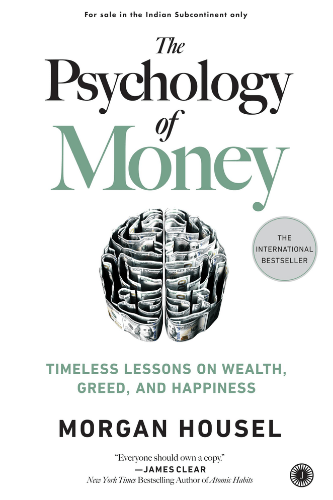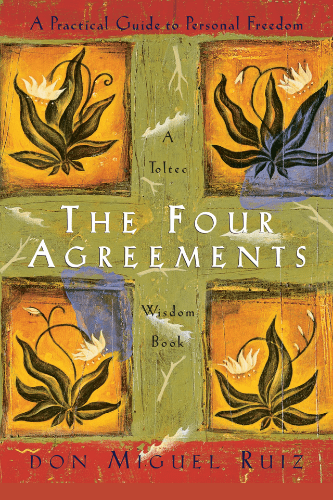Robin Sharma is rated one of the top 5 leadership specialists globally. He is also the author of many successful novels, namely The 5 AM Club and The Monk Who Sold His Ferrari. Robin is revered by some of the world’s most accomplished individuals. He has counselled rock stars, kings, billionaires, and famous CEOs. You can easily download any Robin Sharma book from our website.
The Monk Who Sold His Ferrari Full Book PDF Download By Robin Sharma
Learn to defend your thoughts with The Heart of the Rose exercise.
Yogi Raman, Julian’s instructor, narrates a situation that takes place in a garden. It’s full of gorgeous flowers that smell fantastic. Think of it as a tranquil, serene area where you may refill your energy anytime you need to. Imagine if your mind was a garden like that. What a strong brain! But for most of us, our mind seems like a landfill, far more than a garden. It’s packed with mental clutter, superfluous knowledge, ungrounded fears, and fearful thoughts.
Therefore, the first of the seven virtues of the Sivana method is to regulate your thoughts. What you’re attempting to accomplish here is to manage what even enters into your garden in the first place. Think of yourself as a gatekeeper, standing at the entrance of your head, determining who and what enters in. One practice Julian learned to do this is The Heart of the Rose. To practice it, you need a natural rose and a quiet spot to yourself. Then, you just look at the center of the rose and attempt to fill your head with ideas about how lovely it is.
Think of it as a type of actual meditation. At first, you’ll have loads of distracting ideas, but you’ll grow better at keeping things out of your brain with time. That’s the aim. The more disciplined you become in whatever concepts you let into your mind, the simpler it’ll be to make it into the beautiful, energizing garden you need.
The Rituals of Radiant Living are an essential morning practice that includes all you need.
In the narrative the Yogi relates, a sumo wrestler also emerges. Sumo wrestlers commit to an old, Japanese principle called kaizen. It symbolizes never-ending progress. This attitude, to continuously be learning and growing better, is another attribute of the Sivana method.
The sages offer a step morning regimen they call the Ten Rituals of Radiant Living to help you live this virtue.
- The Ritual of Early Awakening. Six hours of sleep and witnessing the dawn. Of course, you have to find out how much you need yourself, but this is what they propose.
- The Ritual of Solitude. Always make a few minutes to practice stillness after waking up.
- The Ritual of Physicality. Move, get up, do some workout. Whatever gets the blood going.
- The Ritual of Personal Reflection. Did you do your best today? What may you have done better? Find answer to these questions.
- The Ritual of Music. Listen to music regularly to never get imprisoned in a poor mood.
- The Ritual of Spoken Word. Write down a brief sentence you may repeat to yourself during the day.
- The Ritual of Congruent Character. Always pursue your ideas. Write them down, be aware of them and keep to them.
- The Ritual of Simplicity. Ruthlessly live your priorities and demolish anything else that’s unneeded.
- Selflessly serve others, and you’ll b e better off yourself.
Later in the narrative, the sumo falls but suddenly reawakens to the fragrance of gorgeous, yellow flowers. These flowers reflect another virtue, the concept of selflessly helping others. It’s eloquently described in this old Chinese proverb: A touch of smell always stays on the hands that gift you with flowers.
It’s a metaphor, which suggests anytime you assist someone else, part of the advantages will return back directly to you. You seldom know when and how, but karma always comes around. This doesn’t mean you have to join the salvation army; little, basic actions of love and compassion go a long way.
The Pink Wire Cable Represents Discipline: Be Disciplined The pink wire cable symbolizes limits.
You should always have some. But, the secret is – to determine them for yourself because severe self-discipline has excellent power. Yogi Raman recommends that Julian he begins obtaining it by adopting the vow of silence. If you can manage to preserve it for a particular amount of time, you’ll know that you have control over yourself. The Golden Watch Says: Respect Your Time. Next, the gold watch is a representation of time. If you don’t take it into consideration, it may place you in a condition of endless slumber.
Now, you’d think that if you’re living in the Himalayas, you wouldn’t need to worry about matters such as time management. Guess again: one of the Sages’ daily rituals is spending the final 15 minutes of a day to plan the following one. And they are brutal when it comes to time: they want to squander none of it. Because, after all, you wouldn’t want to sleep a second of the day if you knew that this day is the last one you’ll ever spend on this earth. Well, consider this: you won’t live forever.
So it’s time to arrange your time. Smell the Yellow Roses And Serve Others SelflesslyThe aroma of the yellow roses is the fragrance of compassion and sacrifice.
You are not an island: you are a member of mankind. That’s why it’s your job to aid others while in need. And as the Dalai Lama argues in his book “The Art of Happiness,” serving selflessly is not beneficial merely for others around you; it’s beautiful for yourself as well.
. The seventh and final virtue: living in the present. Because that’s where the road of diamonds will take you, and since, after all, it’s all that you have at any given time.
Every morning, spend a few seconds thinking about what good you can do today. Whether it’s contacting your grandmother or congratulating a colleague, it’ll get you one step closer to what the Yogi would term an enlightened existence.







